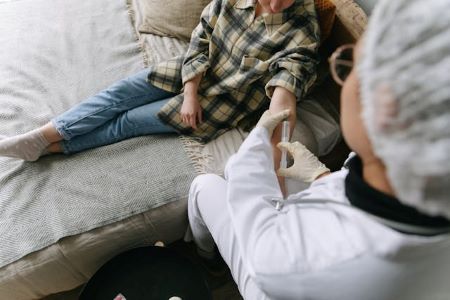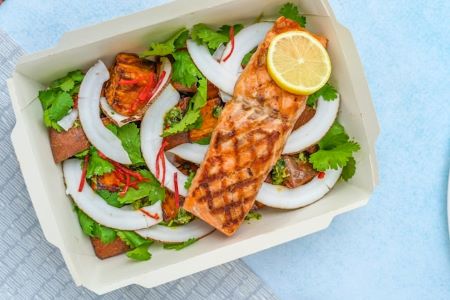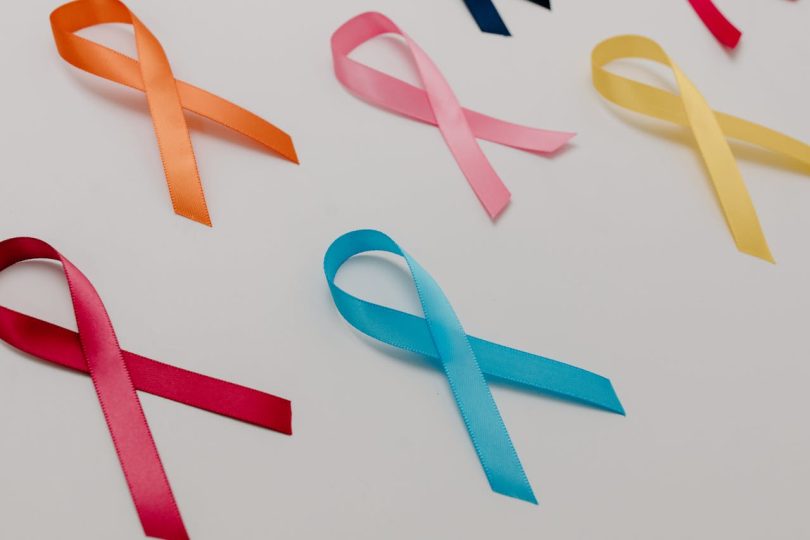Cancer is a rapidly growing concern for us all. With 1 in 2 people expected to get cancer in their lifetimes by 2030 (source: Medical News Today), and with 40% of those cancers considered to be entirely preventable “through actions such as reducing tobacco use, reducing obesity and exposure to UV radiation” (Source: Frontier Economics). In the UK: Between 1971 and 2006, the incidence of cancer increased by around 22% in males and 44% in females. There is a clear need to educate and inform as many people as possible on the measures they can take to reduce their risk and avoid the suffering that is inevitable with this disease.

Standard treatments for cancer include chemotherapy and radiotherapy and a newer treatment which stimulates the natural immune response of the individual with cancer, called immunotherapy. All of these treatments come with risk and chemotherapy and radiation are themselves carcinogenic.
It’s so important that we understand what the drivers of cancer are in order to be able to both prevent it and to support those with it when they are diagnosed.
The main triggers of cancer are genetic, epigenetic & environmental.
The standard medical model is based on something called the somatic mutation theory which asserts that cancer is a disease that is genetic in origin. This is the general basis for the medical model today, though there is a lot of work now in the epigenetic realm too which is where the environment is known to switch the genes on or off. The focus in the medical system is often on the tumour microenvironment and the localised conditions around the tumour itself.
Prof. Thomas Seyfried, a global authority in oncology has shown in his research that cancer is a disease of metabolism. This is known as the metabolic theory of cancer. Your metabolism is how your body makes and uses energy. This happens inside almost all the cells in your body (except red blood cells), within a small part of the cell called the Mitochondria. Your Mitochondria are the powerhouses or the batteries inside of your cells that make energy for you. Cancers are known to hijack the mitochondria when they become damaged. Damage to the mitochondria can occur through lifestyle factors including environmental toxicity like pesticides, or smoking, or it could be through a diets high in toxic or damaged fats, or high in refined grains and sugar.

The hallmarks of cancer can include, increased inflammation, increased activity of cells called oncogenes which under normal circumstances control cell division but in abnormal or situations of active cancer allow uncontrolled cell division, increased immune cell activity, increased hormonal activity, increased DNA damage within cells and damage to mitochondrial function.
Cancer cells can avoid the normal cell death mechanisms which is called apoptosis and this combined with the increased cell division activity means uncontrollable growth hence tumours. They get their fuel from alternative sources than our usual methods in the mitochondria, by hijacking the cell and producing fuel through something called The Warburg Effect. This is a kind of fermentation within the cell instead of the usual method of creating energy. Cancers instead, 90% of the time, use sugar or carbohydrates as fuel which is why the ketogenic diet is so effective for active cancer (Source: Dr Nasha Winters). Some cancers have the ability to hijack other fuel mechanisms like those that make fuel from glutamine, methionine and fatty acids.
This is why integrative oncology is such an important part of preventing, managing & recovering from cancer.
Integrative oncology specialists are usually Naturopathic Doctors, Naturopathic Practitioners, Nutritionists or other health professionals. Some Medical Doctors are currently also training in Integrative Oncology too to run alongside or instead of their own medical strategies with their patients.

As a Naturopath and Nutritionist, my role in integrative oncology is to provide my patients with the right nutritional and lifestyle support to help potentiate any medical care they are undergoing. Using monthly diagnostic tests, usually blood tests but also in certain cases, hormone and stool tests, depending on the type of cancer, integrative oncology specialists will suggest the right kinds of supplements, correct deficiencies, support immune function to allow for example the immunotherapy to have the best chance of working well and we always aim to work alongside the medical oncology team to support their work. Our job is simply to offer support, information and education to allow the patient to get as well informed as possible and make the right choices for themselves.
While there are many, many reasons that cancer can be triggered and much more research needs to be done before we have any definite answers, there are a number of things you can do to reduce your risk. If you have a family history of cancer and want to check your genes and review your own diet and lifestyle with a trained health professional in integrative oncology then I offer consultations using diagnostics and I can help you to ascertain your risks and show you how to limit them.
Generally we can all take certain steps to reduce our risk of cancer:
- Avoid chemicals in the home: No air fresheners, perfumes (unless essential oils), scented sanitary products, scented lotions or skin creams and avoid commercial cosmetics.
- Buy organic – I can’t state this enough, there are significantly more pesticides on vegetable and fruits that are linked to certain cancers. If you can’t afford organic, then wash your vegetables and fruit well, prior to eating.
- Avoid processed food and consider what is actually food: Cereals, junk foods, ready meals, vegetable oils are processed and not ‘real food’ and have been shown to cause inflammation which drives the cancering process.
- Exercise: Getting oxygenated provides a hostile space for cancer since cancers thrive in conditions of low oxygen. Get an exercise bike and pedal lightly while you watch TV on an evening for example. Make time for a walk every day or if you are able, go running, cycling or swimming regularly.
- Manage your stress: Stress is a big trigger for cancer and often people who present with a recent diagnosis, do so following a period of intense stress. Intentional relaxation, meditation, deep breathing, being disciplined about your sleep and wake times will all help. Even saying no and remembering that you don’t have to do it all!
- Drink filtered water, breathe clean air and get your feet onto the earth. Getting toxicity out and grounding are shown to improve health by reducing inflammation and reducing the toxic load.
- Eat animal protein. Quality matters. If you can, support your local farmer by buying direct. Eat eggs, oily fish and delicious raw French cheese. these will provide you with the range of amino acids and healthy fats that you need to be truly healthy.
- Get your nutritional levels checked yearly at the Doctor and supplement if you are deficient. Book in for a checkup with a nutritional therapist, your medical Doctor if they are open to it or any naturopath for professional advice on how best to supplement and what foods are best to eat.
- Above all – Have Fun! Enjoy yourself! Find something every day that makes you laugh, be grateful for the people in your life and what they bring you, find joy in nature and the mundane every day to day, there is always something worthwhile around us.

Integrative oncology empowers individuals to take control of their health by complementing conventional treatments with lifestyle changes. Through clean nutrition, stress management, and regular activity, we can reduce cancer risk and support recovery.
By understanding the root causes & making informed choices, we can build a healthier, more resilient future.
Main – Photo by Tara Winstead



